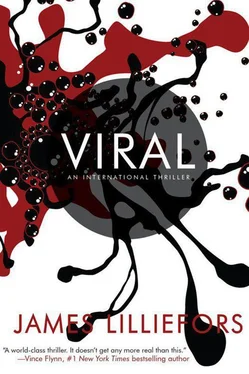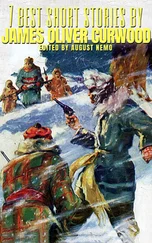“Well, that’s what they’re saying.”
Two days earlier, Gardner had been allowed to bail himself out of prison on the condition that he surrender his passport and wear an ankle monitor. He had been found at an office in the New Technologies Wing at the Gardner Foundation in Oregon, dead of a gunshot to the head.
Twelve minutes later, Melanie Cross called. It had been a couple of months since he’d heard from her, and he was surprised, and pleased, to see her number on the caller ID.
“Hello?”
“Hello.” Her voice sounded unusually deep. “It’s Melanie Cross.”
“I know. Hi. How have you been?”
There was silence on the other end. Mallory strolled into the yard, waiting. Finally she said, “You’ve done a pretty good job of avoiding me over these past few months, haven’t you?”
“Pardon?”
“You heard what I said.”
“Avoiding you? No. No, I haven’t.”
“You haven’t called. Or answered my calls.”
“You didn’t leave any messages, did you?” Something was funny about her voice. “I’m sorry. I’ve thought about you a lot, actually,” he said.
He heard her breathing heavily. “You really kind of hurt me, you know that? You just kind of left me hanging there.”
The next thing he knew, she was crying. Jon Mallory shifted the phone to his other ear and then cleared his throat. Melanie was such a smart and competitive woman that he had forgotten how emotional she could become. “I guess you were never really interested in dating me, were you?”
“I did date you.”
Jon might have said You broke it off but didn’t. He felt a strong and deep affection for Melanie Cross all of a sudden.
“Would you like to meet?” he said.
“When?”
“I don’t know. Now?”
Melanie said nothing for what seemed like a very long time. Finally, she said, “All right.”
Jon Mallory smiled.
CHARLES MALLORY SAT IN a lounge chair on the deck of his home in St. Kitts, drying in the sun from his late-morning swim.
Anna lay in a chaise under a coconut palm, paging through The New York Times as the still-rising sun spread gold light across the calm Caribbean waters. This was their vacation, the first he’d had in a while. It couldn’t have started better , he thought. Waking up on their first full day together and making love, followed by a leisurely breakfast and a swim.
Now Charlie was watching Anna. Seeing the sober clarity in her face that had always inspired him. And wondering what his father would have thought. He would have approved . Yes. He was pretty sure of that.
Anna turned. Her face seemed to open to him “You’re thinking about your father, aren’t you?”
“Am I? How did you know?”
She shrugged. “What were you thinking?”
“Wondering if I’ve wrapped this up to his satisfaction.”
“What do you think?”
“It’s complicated. You can’t feel good about something like this. Not with the people who died and suffered.”
“No.” She folded the newspaper section on her lap. “But maybe we can just enjoy ourselves for a couple of days.”
Yes. What a nice idea .
He was going back to work soon, but in a very different capacity. Back to Africa. His business would be based there for a while, in the nation of Mancala, and Anna was coming with him. They were going to oversee water projects, digging wells and irrigation latrines. Nadra Nkosi would run the operation. A project supported by an “anonymous donor.” They had close to $2 billion to spend on it. It was what Landon Pine had wished in his Last Will and Testament, left behind among his hand-written papers. A small attempt, perhaps, to make up for what he had done.
It was a step, that was all. To help “replace a culture of poverty and hopelessness with a culture of achievement and opportunity,” as Pine had written. Charles Mallory knew it could be done, but that it came down to a commitment of will and resources. A nation that could send a spacecraft to measure the atmosphere of Jupiter had the ingenuity to fix the problems of Africa. It just wasn’t trying hard enough.
Charlie closed his eyes. His father’s story was over now.
But reality, he knew, was stingy with certainties. Charles Mallory had learned that long ago. He also knew that what had gotten inside of Perry Gardner had also spread to other very smart and ambitious people. Even if it lay dormant now, it was possible that one day it would find the perfect host. And then, perhaps, the wheel of history would turn.
Expectations. Begin with that. What if the accepted version of things has another story attached to it. Something not expected. A story on the other side, the side that people don’t see, because they don’t have any reason to turn it over. You understand that. An old story retold throughout history, in different ways. Innate urges to dominate and to control. The examples are sometimes so far from what we expect human nature to be that we cast the perpetrators as monsters. Madmen. Hitler’s dream of a new Reich; the Islamist fundamentalists’ dream of a new caliphate; Mussolini’s dream of a new Roman Empire. Before they were simply mad, though, they were dreams that seized people’s hopes and raised their expectations. For some people, they briefly provided a shared, heightened existence. Most mad dreams don’t become realities, or even become known. Most are more subtle. A story hidden behind another story, sometimes. Suppose you let the madman in to clean up and no one knows that he is the madman. Begin with that. Afterward, regardless of what happened, we would adjust again and create a different set of expectations, and assumptions. We would adapt if we had to, because that is our nature. That is what we do. And in retrospect, we might even have a better, more civilized world because of it. Just suppose .
Nearly seven thousand three hundred miles away, Dr. Sandra Oku ended her day much as she had started it: she kneeled on the ground, clasped her hands together and she began to pray.
Special thanks to Laura Gross for her unflagging belief. Thanks to Juliet Grames and Bronwen Hruska at Soho Press for taking this on and for their invaluable help in shaping the final result. And thanks also to Janet, for being there.
Copyright © 2012 by James Lilliefors
Published by
Soho Press, Inc.
853 Broadway
New York, NY 10003
Library of Congress Cataloging-in-Publication Data
Lilliefors, Jim
Viral / James Lilliefors.
p. cm.
eISBN: 978-1-61695-069-9
1. Virus diseases—Fiction. I. Title.
PS3562.I4573V57 2012
813′.54—dc23
2011050708
v3.1












